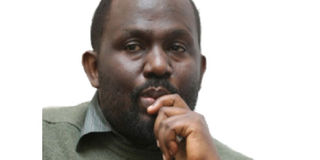Who we are – and that man Rwangyenzi of Ndere Troupe

It started when our historical-profile-documentary project ‘The Wall of Great Africans’ posted on its Facebook page the story of Elvania Namukwaya Zirimu (1938 –1979), who was a leading Ugandan poet and dramatist. Among other things, many Ugandans were fascinated by the reference to her having “helped found the Uganda National Choir in 1967”.
Uganda with a national choir? Looking at Uganda in 2017, it is impossible to imagine it.
And so the conversation drifted to whether it is true that Uganda also had a national troupe. Yes, it was called “The Heartbeat of Africa” and was famous, especially in the Commonwealth those days. The questions returned when on the weekend we portrayed Rose Mbowa (1943 –1999), who was writer, actress, academic and feminist. Among other things, Mbowa was a pioneering of “theatre for development”.
Doing ‘The Wall of Great Africans’, has given us fascinating insights into how Africans from different countries see themselves, if the story of the often unsung heroes, who shaped their countries is painted on a 50 to 100 years’ canvas before them.
Without giving away trade secrets, we can say that for some, the sense of righting historical wrongs is very strong. Other Africans are heavily nostalgic. Others love stories of overcoming odds; others are moved by great tragedies.
Ugandans, we now think, have little sense of the rich non-political history of their country. And they are little aware of past national glory outside sports. For that reason, they get overawed when they encounter it.
So the story of Pumla Ngozwana Kisosonkole (1911–1997), politician and women rights activist, had many gobsmacked. Pumla was born in South Africa in 1911, and got married to Christopher Kisosonkole in 1939, then they moved to Uganda where she became involved in politics. She was kind of the first generation of Angelina Wapakhabulos.
Many of those who knew of her, hadn’t figured she was South African. But even more puzzling, what the hell was Christopher Kisosonkole doing in South Africa in the 1930s? Kisosonkole was one of the sons of Sekuuma, a wealthy landowner and prominent chief in Buganda. Christopher Kisosonkole was the father of Damalie and Sarah Kisosonkole.
Damalie married Kabaka Muteesa II. Sarah is the mother of Kabaka Ronald Mutebi. And we will leave that there.
One of the questions, that has been raised more prominently with Rose Mbowa, is what Uganda has missed, or would be, if it again saw a massive rival of thoughtful theatre, and “high” creative arts generally. Someone wrote in to ask what does it mean to say Mbowa “[created] programmes to empower local African artists and their communities?” and “theatre for development”.
Rather than go off on an intellectual tangent, perhaps the best way to answer this is to reflect on practical example of the cultural performance and dance group Ndere Troupe. It was founded in 1986 by Stephen Rwangyenzi. Rwangyenzi is a culturally sophisticated man in very practical ways. We are not sure if he had a grand social and philosophical mission for Ndere, but we know its fruits.
Ndere rose at a difficult time in Ugandan history, when the northern part of the country was in the grip of a violent and medieval war. In the early years after President Museveni took power in 1986, anti-northern sentiment was still strong. The sense of alienation was so virulent that NRM and NRA (now UPDF) hardliners, and exiles from northern Uganda, spoke of a country that was divided by the “Karuma line” and would never be one again.
They didn’t reckon with Ndere. By constituting a troupe doing national dances, it enabled a highlight show in its shows to be the “bwola” dance from the north, performed to cheering audiences mostly in the south.
Along with it, a cast of new stars from the north, most notably Okello Okelo, became nationally beloved, driven to the top through a process that circumvented divisive national politics. Okello Okelo grew, becoming an actor, musician, and choreographer, and went on to a role in the “King of Scotland”. When I last checked, he was executive director of Mizizi Ensemble.
Both at home and abroad, the much storied Ndere, enabled a description of Uganda where there wasn’t a dividing line. There were other factors at play, but Ndere for its part, made possible a national re-engagement between the north and the rest of Uganda through the soft power of dance and song; a building of bridges; a “re-mainstreaming” of the north, and reconciliation based on a price everyone could afford to pay.
The magic of things like this, is that you don’t see them, until you look hard. It’s why people like Elvania Namukwaya Zirimu, Rose Mbowa, Byron Kawadwa, Lubwa p’Chong, Okot p’Bitek, to name a few, are some of this country’s richest unmined treasure.
Mr Onyango-Obbo is the publisher of Africa data visualiser Africapedia.com and explainer site Roguechiefs.com. Twitter@cobbo3




